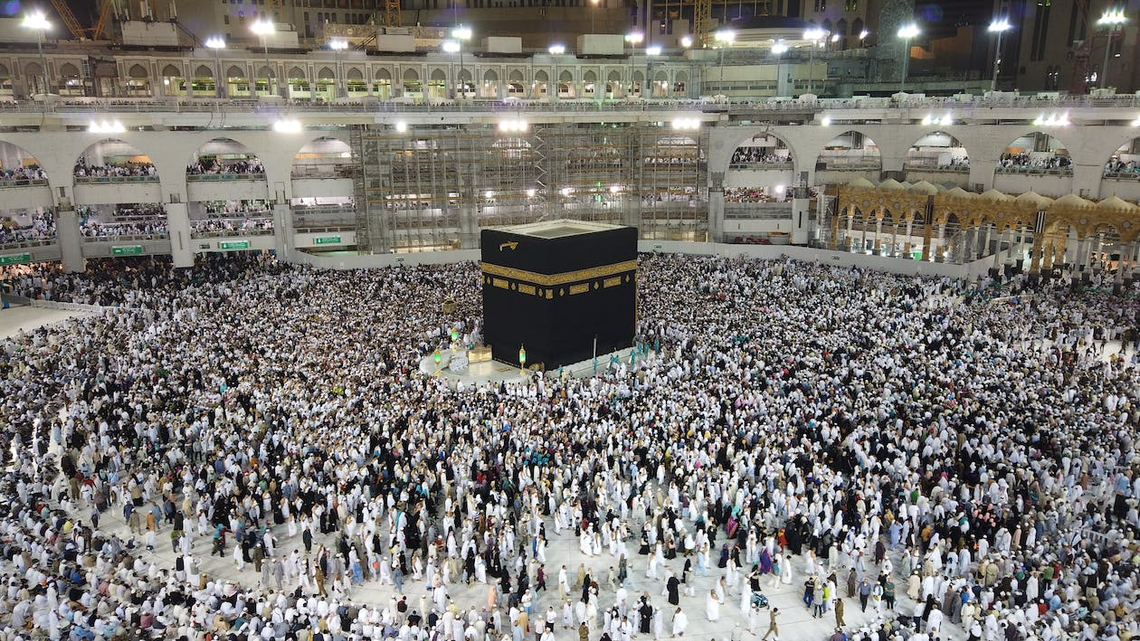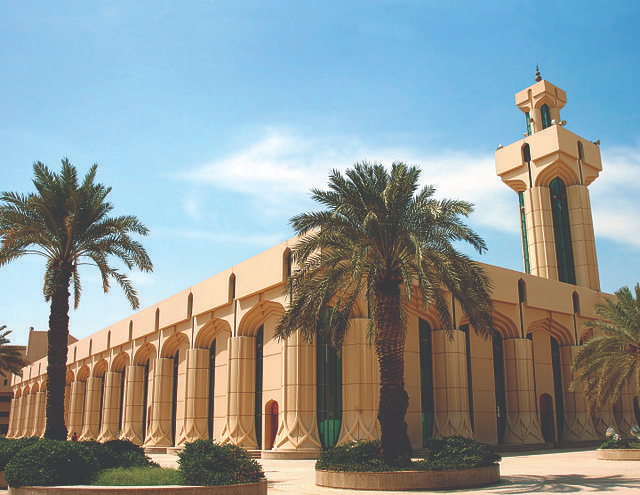
Apply to a foreign university with confidence
- Properly fulfilled documents
- Perfect motivation letter
- Support from a personal mentor
- Offers from several universities
In this article, you will learn how higher education works in Saudi Arabia — how much education costs and what scholarships are available, and whether it is possible to immigrate and find a job as a foreigner.
Free consultation
Higher education in Saudi Arabia is a promising direction in the Middle East. The government invests heavily in education, which has resulted in high quality teaching and generous scholarships. Studying in Saudi Arabia is often considered to be conditionally free. Scholarships and grants with full tuition coverage are available for all students, even at the country’s leading universities. At the same time, many of them have rather low admission requirements. What is more, you can study in English.
In this article, you will learn how higher education works in Saudi Arabia — how much education costs and what scholarships are available, and whether it is possible to immigrate and find a job as a foreigner.
| Type of program | Duration | Min. cost per year | Avg. cost per year |
|---|---|---|---|
| Professional Baccalaureate | 2-3 years | 1,000 USD | 8,000 USD |
| Bachelor's | 3-4 years | 3,700 USD | 14,000 USD |
| Master's | 2 years | 11,300 USD | 15,500 USD |
| PhD | 2-5 years | 10,000 USD | 16,200 USD |
Specify the exact prices and requirements on the university websites.
| Expenses | Avg. monthly cost |
|---|---|
| Groceries | 71 USD |
| Accommodation | 275-400 USD |
| Public transportation | 53 USD |
| Internet (60 Mbit) | 70 USD |

You can enroll at a university in Saudi Arabia after completing the 11th grade. There is no single service for the application process. You can email documents directly to the selected university. Before that, they need to be translated into Arabic and certified by a notary.
Some universities in Saudi Arabia require applicants to complete a preparatory year. During this year, students study English, segments of their future profession, and also master academic skills — writing essays, conducting research, critical thinking, and so forth.
Many universities in Saudi Arabia require you to pass a single GAT exam upon admission, which is needed to assess the knowledge and analytical abilities of applicants. It consists of two parts: oral and written.
The admission process and list of required documents may differ depending on the university. Some universities in Saudi Arabia have special requirements. For example, Medina Islamic University only admits Muslim applicants. Specify the requirements and exact list of documents on the official website of the selected university.
You also need to confirm your language proficiency in Arabic or English. For English-language programs, you need to provide TOEFL or IELTS results, while Arabic programs require you to pass a national language proficiency test at a university center or language school.
If you decide to study in Arabic, but do not have a strong enough command of the language, you can take language courses at the university. These programs last 1-2 years. Upon completion, you will not only be able to write, read, and fluently speak Arabic, but also pass the entrance exams and receive a language proficiency certificate.
At many Saudi universities, women can study only with the consent of a guardian — a father, husband, brother, etc. Medina is completely closed to women. Saudi Arabia has all-female universities. Some government institutions, such as King Abdulaziz University, allow women to enroll on their own. However, the admissions committee will still require the passport data of an adult male guardian.
Some universities may require you to pass an entrance exam and interview, as well as provide other documents — for example, a passport and iqama (residence permit) of the guardian for women.
All documents, except for the passport, must be translated into Arabic and notarized.
As part of Vision 2030, the government of Saudi Arabia is developing vocational education in the country — funding new technical colleges and supporting vocational education programs at private universities[4].
Vocational education in Saudi Arabia is available through colleges. They offer programs in economics (accounting, sales, secretarial business), agriculture, and industry. The curriculum combines general education subjects with professional practice. The programs last 3 years. For admission, it is necessary to provide a certificate of secondary education.
There are also programs of higher professional education and applied bachelor's degrees in the fields of mechanical engineering, health care, agriculture, pedagogy, accounting, and so on. Most of them are designed for 2-3 years, requiring you to collect 60-90 credits. At the end of the program, the student receives an associate’s degree. After that, you can enter the 2nd year of a bachelor's program in a related field and receive a degree in applied sciences.
Higher professional education is available to foreigners and can be obtained at public and private universities, branches of Western universities, and educational centers.

A bachelor's degree is the first stage of higher education in Saudi Arabia. Programs last 3-4 years, for which you need to collect 128-136 credits. For medical specialties, programs last 6 years and require 223 credits. Upon completion, the student receives a doctorate in medicine.
The credit system in Saudi Arabia is similar to that of the United States: a credit hour consists of 1 hour of classroom work and 2 hours of student self-study (homework, reports, abstracts, essays). The curriculum also includes seminars and colloquia, laboratory and research projects, term paper writing, internships, and field trips for applied specialties.
There is an age limit at Saudi universities — only applicants from 18 to 25 years old can enroll in a bachelor's program. Teaching takes place in Arabic and English. Almost every university in Saudi Arabia has English-language programs — for example, in the humanities, economics and management, medicine and pharmaceuticals, engineering, and more.
Upon graduation, students take a final exam and receive a diploma. They are awarded a Bachelor of Science or Bachelor of Arts degree.
Due to the rapid economic development of the country, technical specialties, as well as the economics and management fields, are especially developed in Saudi Arabia. Moreover, economic education in the country has its own characteristics — for example, you can study "Islamic banking" at Dar Al-Hekma College. In Islam, usury — receiving interest on a loan — is prohibited; in the Islamic banking program, students learn how to organize financial activities in accordance with Sharia law.
Saudi Arabia is also a center for theological education and Islamic studies. The Islamic University of Medina and Al Imam Muhammad Ibn Saud Islamic University specialize in the study of Islamic law, the foundations of religion, and the Arabic language. The library at the University of Medina contains unique artifacts of Islamic culture — including about 3500 manuscripts more than a thousand years old[7].
The cost of bachelor’s programs is from 3,700 USD to 17,500 USD per year. Check the current prices and conditions of scholarship programs on the official university websites.
Some universities may require applicants to pass a unified entrance exam and an interview. Women may need to provide the passport information and residence permit of a guardian.
All documents, except for the passport, must be translated into Arabic and notarized.
The next stage of education in Saudi Arabia is a master's degree. Programs last 2 years and consist of 36 credit modules. They include lectures and seminars, term paper writing, midterm tests, and a final exam. Teaching takes place in Arabic and English. Compared to bachelor's programs, there are many more programs offered in English.
For admission to master's programs in Saudi Arabia, you must have a GPA above 3.0 and pass a standardized GAT test (Graduate Aptitude Test) with a minimum of 65 points. Some programs require GRE results. Minimum language exam scores for English-language programs: TOEFL — 400 or IELTS — 4.5.
Final certification in Saudi Arabia takes place in two ways. You can write and defend a master's thesis, or do an internship and conduct a practical case study from the company's activities. Upon graduation, students receive a master's degree.
Most universities have June and January deadlines. Some, however, do not set deadlines. Check on the official university websites.
The cost of a master’s program averages at 15,500 USD per year.
MBA programs are intended for entrepreneurs and managers aiming to work in business. Programs last from 2 to 5 years. The curriculum consists of real case studies, research, and development of models for real businesses.
In Saudi Arabia, an MBA can be obtained from The King Fahd University of Petroleum and Minerals. They offer two types of MBAs:
To enroll in Saudi MBA programs, you need:
All documents, except for the passport, must be translated into Arabic and notarized.
The list of required documents and entrance examinations may vary depending on the university. Check the official university website for the exact requirements.


The final stage of academic education in Saudi Arabia is a PhD. Programs last from 2 to 5 years depending on the field of study.
As a rule, doctoral studies are conducted in Arabic. However, you can find programs in English at the leading public and private universities in Saudi Arabia.
Acceptance of applications usually begins at the beginning of the fall semester one year before the start of the program, and ends in January of the following year.
At the end of the program, students take a state exam and defend a research dissertation. Graduates are awarded with a PhD degree.
Doctoral studies in Saudi Arabia cost an average of 16,200 USD per year, with some programs reaching up to 20,000 USD per year.
All documents, except for the passport, must be translated into Arabic and notarized.
In Saudi Arabia, academic careers are divided into three levels.
First, a graduate student becomes a Teaching Assistant or lecturer. For this position, it is enough to have a master's degree with an exceptional GPA. An assistant can conduct lectures, but may not evaluate student work.
The next step is that of an Associate Professor. To reach this position, you must receive a PhD and work as an assistant for 4 years. The university rector appoints a candidate for the position on the basis of faculty and academic council recommendations.
After 4 years of work, an associate professor can become a Professor.
Academic careers require effort and extensive work. Therefore, representatives of this profession are valued in Saudi Arabia. The average salary of a professor is 7,000 USD per month[8]. Depending on the situation, the amount of experience and previous salaries may affect this rate.
Scholarships for studies at a Saudi university are provided by the government and private universities. As such, education in the country can be obtained for free or with a large discount.
There are three types of funding:
For example, at King Fahd University of Petroleum and Minerals, Taibah University, and Princess Nora bint Abdulrahman University, students with a GPA above 3.0 can receive scholarships. They cover the cost of tuition, accommodation, medical care, study materials, and other expenses[9].
In addition, students in Saudi Arabia receive coupons for discounted meals at university canteens and a monthly stipend of 224-266 USD. Sometimes, an allowance of 453 USD/month is allocated upon arrival so that the student can settle into the environment. For excellent grades in previous studies, you can receive up to 266 USD at a time.
Students in Saudi Arabia can receive funding by becoming a teaching assistant — the position covers the cost of tuition, living expenses, and monthly payments. In return, the student must teach and conduct research at the university.
Scholarship requirements:
Conditions for obtaining funding, as well as the amount of the scholarship, depend on the specific university. You can find the exact requirements on the official websites of universities and the Saudi Ministry of Education.


A student visa to Saudi Arabia does not grant permission to work.
However, you can do internships while studying in the country, which are often paid. For example, Aramco University organizes internships for international students in engineering, law, medicine, and business. Students with at least a 2.5 GPA can apply. Admission is conducted on a competitive basis. The internship includes practice at a company, a monthly stipend, accommodation on campus, travel expenses, and medical insurance.
Bachelor’s and master’s students also have the opportunity to conduct research at The King Abdullah University of Science and Technology.
Advantages of this internship:
Degrees obtained at Saudi universities are recognized all over the world. Upon completion, you will be able to find a job in many countries.
The Saudi labor market has been hit hard by the COVID-19 pandemic. At the end of 2021, the unemployment rate in the country was 6%[10]. For comparison, the rate in the neighboring Arab Emirates was 5%[11], in Israel — 4%[12], and in Europe as a whole — 6.5%[13].
Students can find an employer in Saudi Arabia only upon receiving a master's degree. The chances of finding a job in Saudi Arabia are quite low, especially if you do not speak Arabic and are not a citizen of the country. Saudi Arabia has a list of prohibited jobs for foreigners. Among these are drivers, policemen, secretaries, catering workers, along with managerial and leadership positions in various fields[14]. When applying for a job in Saudi Arabia, you need to pay a "tax on the poor", which compensates for the loss of a position by a citizen of the country.
About 13 million foreigners live in Saudi Arabia[15]. Almost all of them are from neighboring countries and perform the functions of laborers. Foreigners note that it is very difficult to get a qualified job in Saudi Arabia.
However, technical professions are highly valued in Saudi Arabia: data analysis, digital marketing, engineering, personnel management, and project management[16].

Foreigners can work in Saudi Arabia only if they have an iqama (residence permit) and a work permit. Moreover, a foreign worker needs a sponsor: a citizen of the country or a Saudi company. The employer issues an invitation to the employee, which is then submitted to the embassy along with other documents to obtain an iqama. The application processing time is 3-7 business days. The cost is 60-150 USD.
Saudi Arabia has strict citizenship laws. You can get it by birthright, through marriage, or after 10 years of residence in the country — 5 of which must be permanent residence. Moreover, applicants must fill out a form. Points are awarded for each question — education, religious affiliation, knowledge of the language. The request is considered on an individual basis by the king.
You have more chances to obtain citizenship if your profession is in the following list: doctors and nurses, clergymen, scientists, programmers and engineers.
After several years of residence with an iqama, a foreigner can obtain permanent residence. To do this, you need to confirm Arabic proficiency and pass exams on the laws and traditions of the country. After 10 years of residence in the country, you can apply for citizenship. Dual citizenship is prohibited.
All documents must be in Arabic. Term of consideration — 6-12 months.
60+ countries
we work with
$1,000,000 saved
by students through scholarships
6,400 offers
our students got